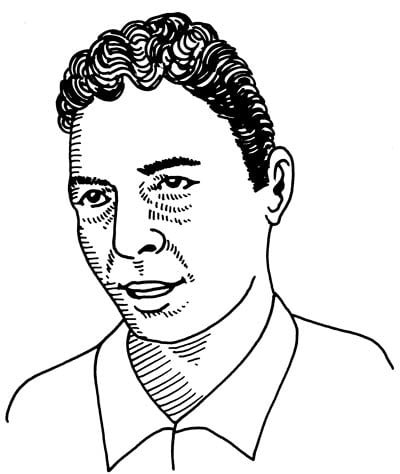
Robert Oppenheimer’s name has become almost synonymous with the atomic bomb, and also with the dilemma facing scientists when the interests of the nation and their own conscience collide.
His early education was at the Ethical Culture School in New York. He took math and science classes, but also enthusiastically studied Greek,
Latin, French, and German. He had a feel for languages and often learned one quickly just to read something in its original language. He learned Dutch in six weeks in order to give a technical talk in the Netherlands. He also maintained an interest in classics and eastern philosophy throughout his life.
He obtained his Ph.D. in Germany after graduating from Harvard in 1925 and studying at Cambridge University under Ernest Rutherford. In 1929 he returned to the United States and positions at Berkeley and Cal Tech. He was an extraordinary teacher and an excellent theoretician. His analyses predicted many later finds, such as the neutron, positron, meson, and neutron stars.
By 1939, Niels Bohr brought news to the U.S. that Germans had split the atom. The implication that the Nazis could develop extremely powerful weapons prompted President Roosevelt to establish the Manhattan Project in 1941. In June 1942, Robert Oppenheimer was appointed its director. Preliminary research was being done at Columbia University, the University of Chicago, but Oppenheimer set up a new research station at Los Alamos, New Mexico. There he brought the best minds in physics to work on the problem of creating an atomic bomb. In the end he was managing more than three thousand people, as well as tackling theoretical and mechanical problems that arose.
On July 16, 1945, Oppenheimer witnessed the first explosion of an atomic bomb in the New Mexico desert. “We knew the world would not be the same,” he said. Within a month, two atomic bombs were dropped on Japanese cities. Japan surrendered on August 10, 1945.
After the war, Oppenheimer chaired the U.S. Atomic Energy Commission. He opposed developing an even more powerful hydrogen bomb. He held the academic post of director of the Institute of Advanced Study at Princeton, and in the last years of his life, he thought and wrote much about the problems of intellectual ethics and morality. He died of throat cancer in 1967
